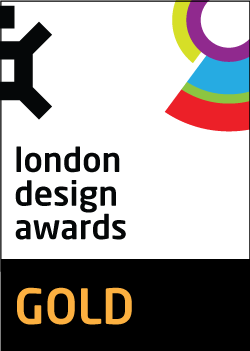









Image Credit : Wiesner-Hager Möbel GmbH

Project Overview
yuno, the smart alternative to the folding table.
Conference and convention halls call for a particularly high degree of efficiency in the handling of tables and chairs. The yuno stacking table was designed with just such areas in mind. The design of the table facilitates compact stacking – without any need to fold the frame. yuno thus pioneers an entirely new generation of mobile stacking tables.
Organisation
Team
Andreas Krob - Designer
Franz Gurtner - Marketing Director
Markus Wiesner - Company Owner
Project Brief
yuno impresses with its minimalist elegance and an innovative design concept which adopts the positive features of a folding table whilst avoiding its weaknesses. yuno stacks easily and compactly without the need to fold the frame, meaning a significant time saving when setting up and dismantling tables, as well as space-saving storage.
Wiesner-Hager’s yuno stacking table range opens up entirely new ways of furnishing conference, meeting and event centres – environments which until now were nearly always equipped with folding tables. In large multi-functional rooms and halls highly efficient handling of tables and chairs is especially important and folding tables have traditionally been a popular choice for such applications, as they can be stacked and stored to save space when they are not needed. The new yuno stacking table was designed precisely for these areas yet breaks with the tradition of inconvenient and time consuming folding. As well as saving time, effort and space, yuno’s high quality, aesthetically appealing design makes it an attractive choice for other areas such as seminar rooms and creative spaces.
Project Innovation/Need
In large, multifunctional rooms and halls highly efficient handling of tables and chairs is especially important. The yuno stacking table was devised for exactly these kinds of spaces. The design of the table facilitates compact stacking – with no need to fold the frame. yuno thus pioneers an entirely new generation of stacking tables. Moreover, yuno’s high quality, aesthetically appealing design makes it an attractive choice for areas such as seminar rooms and creative spaces.
What is particularly practical when setting up tables for banquets or in rows is that, unlike traditional folding tables, yuno can be linked lengthways without additional linking elements thanks to its special interconnecting frame. This longitudinal alignment can be achieved in two ways: if the table legs are positioned side by side, the table tops join seamlessly. On the other hand, if the table legs are linked, so that together they form one leg, a space is created.
The tables can be stacked in an upright position or laid upside down on the floor or on the transport platform. Up to a maximum of 10 tables can be stacked on the floor and on the transport trolleys. Small castors integrated into the glides make it easy to move the tables from the transport trolley to exactly where they are required. A modesty panel made of fabric provides a visual screen and no tools are required for mounting or removing the modesty panel.
Design Challenge
The original intention was to develop a folding table. However, after further analysis this did not describe the focus correctly. A table needed to be developed that could be stored in the smallest spaces possible. The basic idea behind the table was complete reduction, reduction in function. This meant not being able to fold the table yet still retaining the full functionality of a folding table. Special attention needed to be paid to the design of the table legs as they needed to allow for easy stacking without damaging the legs. Therefore, small stacking buffers at the table’s edge had to be designed to ensure that one person can pull the table over the frame. This still had to allow two easy options for stacking: stacking vertically – one on top of another to form a tower. And the other option required was stacking horizontally but in order to achieve this, a tailor-made stacking trolley also had to be developed.
The final challenge which had to be overcome was designing a simple way for the table frames to be interlocked to be able to join them together lengthwise without using any additional components.
Sustainability
Long before the scarcity of resources and climate change became widely discussed issues, Wiesner-Hager was fully aware of the necessity of a sustainable development. Since the mid-1980s environmental problems have been analysed and solved by Wiesner-Hager systematically and step by step, and on the basis of our commitment to an active environmental policy.
Since 1992 Wiesner-Hager has prepared yearly input-output analyses. The first full company-related life cycle assessment acc. to EN ISO 14040 was established for the financial year 2009/10, including a quantifiable ecological impact assessment "cradle to gate", examining the impacts of the entire enterprise at all production sites. This data is the basis for establishing the Environmental Product Declarations (EPD) acc. to ISO 14025, which are certified by TÜV Austria (the Austrian technical control association) and are equivalent to Type III declarations.
An EPD according to ISO 14025 and EN15804 type B was created for yuno. This guaranteed 100% transparency of the environmental impact of yuno. The procedure to compile this declaration was audited on 11/09/2017 by TÜV Austria who authorized the declaration holder to generate EPD type III. The certificate is valid until 30/09/2020 and the compliance of the requirements will be ensured by annual internal and external evaluations.
From the product specification to series maturity ecological requirements are always considered in the development process. This includes the selection of eco-friendly materials such as PEFC or FSC certified wood from forests cultivated according to sustainable forest management schemes, and the use of recycled materials.
Product Design - Office
This award celebrates creative and innovative design for either a component or overall product. Consideration given to aspects that relate to human usage, aesthetics, selection of components and materials, and the resolution of assembly, manufacturing and the overall function.
More Details

